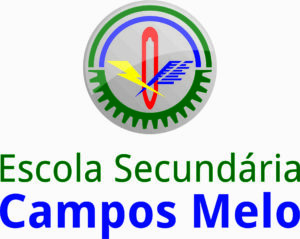Escola Secundária Campos de Melo (Covilhã, Portugal)
 Campos Melo school is a state secondary school, educating teenagers from the 7th grade -12, 13 year-olds to the 12th grade – 18, 19 year-olds. There are older students, graduating in special courses designed for those who have interrupted their studies and want to resume them later or for those who do not intend to go to the university and want to get some formation for a certain job.
Campos Melo school is a state secondary school, educating teenagers from the 7th grade -12, 13 year-olds to the 12th grade – 18, 19 year-olds. There are older students, graduating in special courses designed for those who have interrupted their studies and want to resume them later or for those who do not intend to go to the university and want to get some formation for a certain job.
School community consists of 92 teachers and about 802 students. The school is 132 years old and it is the oldest school in the region, preserving cultural and historic traditions. The mission of the school is to prepare conscious, active citizens of EU, taking advantage of the intellectual potential of both teachers and students, their creativity and their commitment to projects they design together.
The school is very well equipped and has modern multimedia that enables the use of modern technologies and IT in didactics and pedagogy. Apart from traditional activities school enables access to other forms of teaching – learning, charity actions, meetings with representatives of science and culture and art. Another priority of the school is to help students find their path in life – this is, to help those who are not very fond of studying, find the course that may turn them into active citizens. There are several professional courses in our school, ranging from Laboratory Tests Technician, Health Assistant Technician, Computer Equipment Management Technician, Secretarial Studies, Equipment Design Technician, Industrial Maintenance Technician and Sales Technician. The school is also interested in broadening the horizons of these adolescents who, besides school, have no other source to help them. The school strongly believes that, engaging our students in highly motivating activities that can be developed with such an attractive project, would be for their benefit, target of the educational priorities.
The city used to be of great industrial development but, currently, it is undergoing serious difficulties, having a very high unemployment rate. Many of the students come from the surrounding areas and from families who live mainly on agriculture and who are facing serious economic difficulties. The city also has a University, attended by students from all the country, from Portuguese-speaking African countries and Erasmus’ students, which have, somehow, contributed to the development of the city and region. Presently, people depend, economically, on services and tourism, being winter the season that attracts most visitors.
